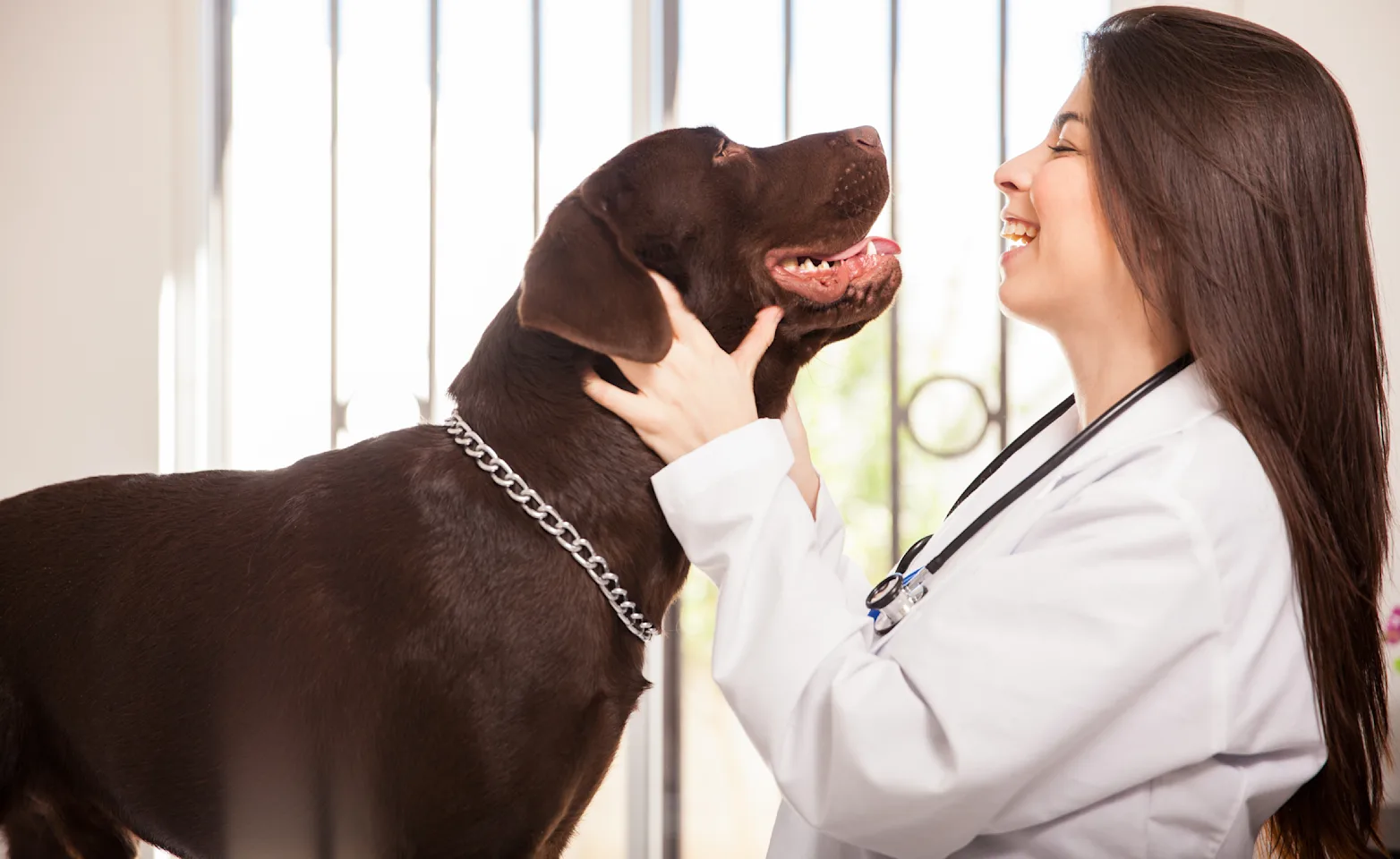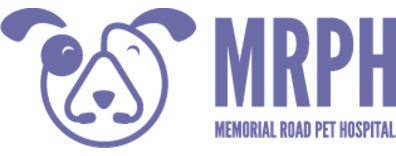Memorial Road Pet Hospital

Understanding Puppy Behavior

Puppy Behavior and Development
Puppies are usually weaned at six to seven weeks, but are still learning important skills as their mother gradually leaves them for longer periods of time. Ideally, puppies should stay with their littermates (or other “role-model” dogs) for at least 12 weeks.
Puppies separated from their littermates too early often fail to develop appropriate social skills, such as learning how to send and receive signals, what an “inhibited bite” (acceptable mouthing pressure) means, how far to go in play-wrestling, and so forth. Play is important for puppies because it increases their physical coordination, social skills, and learning limits. By interacting with their mother and littermates, puppies explore the ranking process (who’s in charge) and also learn how to be a dog.
Skills not acquired during the first eight weeks may be lost forever. While these stages are important and fairly consistent, a dog’s mind remains receptive to new experiences and lessons well beyond puppyhood. Most dogs are still puppies, in mind and body, through the first two years of life.
Stages of Puppy Development
0–2 Weeks: Neonatal Period
Puppy is most influenced by his mother.
Senses of touch and taste are present at birth.
2–4 Weeks: Transitional Period
Puppy is most influenced by his mother and littermates
Eyes open, teeth begin to come in, and senses of hearing and smell develop.
Puppy begins to stand, walk a little, wag tail, and bark.
By the 4th or 5th week, eyesight is well developed
3–12 Weeks: Socialization Period
During this period, puppy needs opportunities to meet other dogs and people.
By 3 to 5 weeks, puppy becomes aware of his surroundings, companions (both canine and human), and relationships, including play.
By 4 to 6 weeks, puppy is most influenced by littermates and is learning about being a dog.
From 4 to 12 weeks, puppy remains influenced by littermates and is also influenced by people. Puppy learns to play, develops social skills, learns the inhibited bite, explores social structure/ranking and improves physical coordination.
By 5 to 7 weeks, puppy develops curiosity and explores new experiences. Puppy needs positive “people” experiences during this time.
By 7 to 9 weeks, puppy is refining his physical skills and coordination, and can begin to be housetrained. Puppy has full use of senses.
By 8 to 10 weeks, puppy experiences real fear involving normal objects and experiences; puppy needs positive training during this time.
By 9 to 12 weeks, puppy is refining reactions, developing social skills with littermates (appropriate interactions), and exploring the environment and objects. Puppy begins to focus on people; this is a good time to begin formal training.
3–6 Months: Ranking Period
Puppy is most influenced by “playmates,” who may now include those of other species.
Puppy begins to see and use ranking (dominance and submission) within the household (the puppy’s “pack”), including humans.
Puppy begins teething (and associated chewing).
6–18 Months: Adolescence
Puppy is most influenced by human and dog “pack” members.
At seven to nine months, puppy goes through a second chewing phase, part of exploring territory.
Puppy increases exploration of dominance, including challenging humanss.
If not spayed or neutered, puppy experiences beginnings of sexual behavior. (Spaying or neutering your puppy at an early age will likely increase the health benefits
